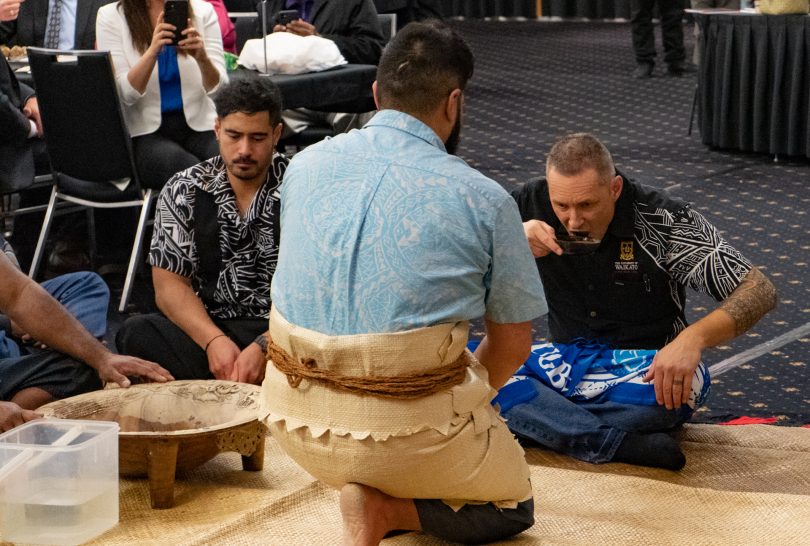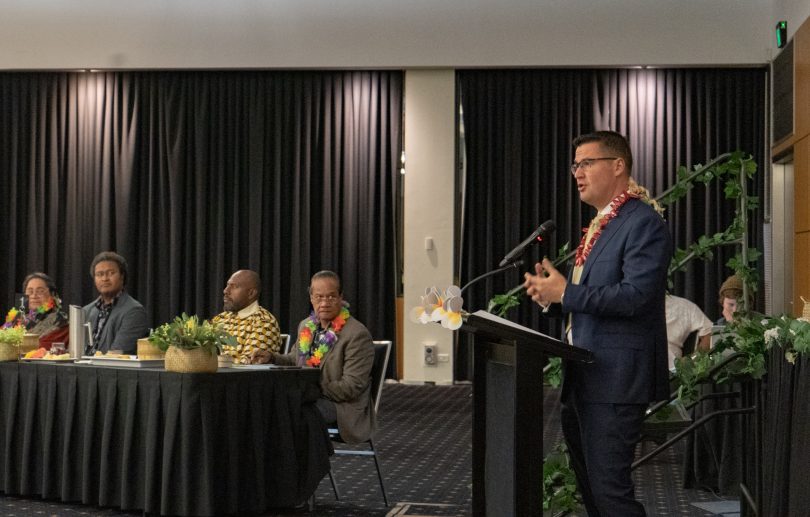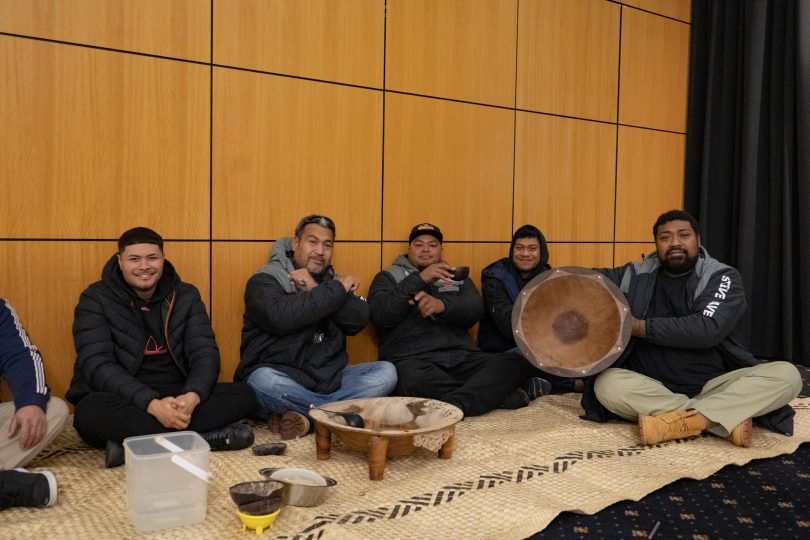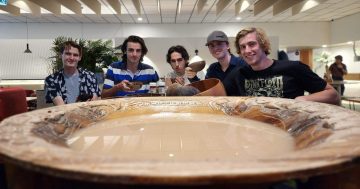
Dr Apo Aporosa drinking kava during a ceremony at the Hellenic Club in Woden. Photo: Dominic Giannini.
Kava is the cornerstone of Pacific Islander tradition and, while an acquired taste, helps connect Islander-Canberrans with their cultural identity.
But the plant root, which is mixed with water to create the drink, is hard to access in Australia due to a restriction on imports.
Travellers can only bring 4kg of kava into Australia on their persons, and it cannot be imported.
For Islander-Australians, not having access to kava in Australia has begun to hurt their cultural identity and forced some to the black market for the root that is commonly used in traditional ceremonies such as births, deaths and marriages.
Furthermore, this has been exacerbated by the COVID-19 pandemic while travel is restricted.
Tupz Takiari, a local advocate who has been making and drinking kava for the past two decades, said the drink is a symbol of the land he comes from.
“When you drink kava, it is like you are drinking part of the land and part of your culture,” he says.

Tupz Takiari has been drinking kava with his community for 20 years. Photo: Dominic Giannini.
“Kava is essentially one of the cornerstones of Pacific culture. It is part of everything we do from weddings to funerals to celebrations, even installing chiefs or kings.”
There is a significant social element to kava for Pacific Islanders. Even though it is a ceremonial drink, it is often made for farewells or housewarmings and to bring people together to foster a sense of connection.
But while friends and ceremonies may change, the way kava goes down doesn’t.
“To be honest, I have drunk kava for nearly 20 years now and it still tastes the same,” laughs Tupz. “It does not get any better. It is an acquired taste, but it is not as bad as people think it is.”
Tupz was given the honour of presenting ACT Senator and Minister for International Development and the Pacific, Zed Seselja, with a bowl of kava during a recent forum between government officials and community members.
Senator Seselja reiterated that the Federal Government is committed to legalising the commercial import of kava and spoke of its importance to the Pacific Islander community.

Senator Zed Seselja said the Federal Government is committed to removing regulations on the commercial import of kava. Photo: Dominic Giannini.
A 2019 pilot program increased the amount of kava that can be brought into Australia from 2kg to 4kg, but the second phase of the pilot was delayed due to the COVID-19 pandemic.
The allowance for the commercial import of kava will come into place by the end of 2021.
Dr Apo Aporosa, who is based at Te Huataki Waiora School of Health, in New Zealand, says Pacific Islander traditions have been impacted during the COVID-19 pandemic when kava has not been available.
Dr Aporosa is also dismayed at the current restrictions, saying that because the drink is not alcohol, it is a lot less harmful than other substances that are readily available in Australia, while providing some health benefits for drinkers.
“According to some sources, I am the world’s leading expert on the social use of kava, but I think I am the world’s leading expert in just drinking kava,” he jokes. “But I have done a lot of research in that area.

Kava is important for Canberra’s Pacific Islander community. Photo: Dominic Giannini.
“It does not affect you in any way like alcohol or marijuana.
“A lot of people ask, ‘Why do you drink it?’ The reality is it’s really important to my culture. It is the way we connect and interact when we drink kava that is really good for mental health.
“It is something we do as a community, whether it is with one other or 500 others.”
Kava is sometimes used as a treatment for insomnia, stress and anxiety.
However, excessive consumption of kava can lead to drowsiness, nausea and loss of muscle control, while there is also a range of long-term effects.












